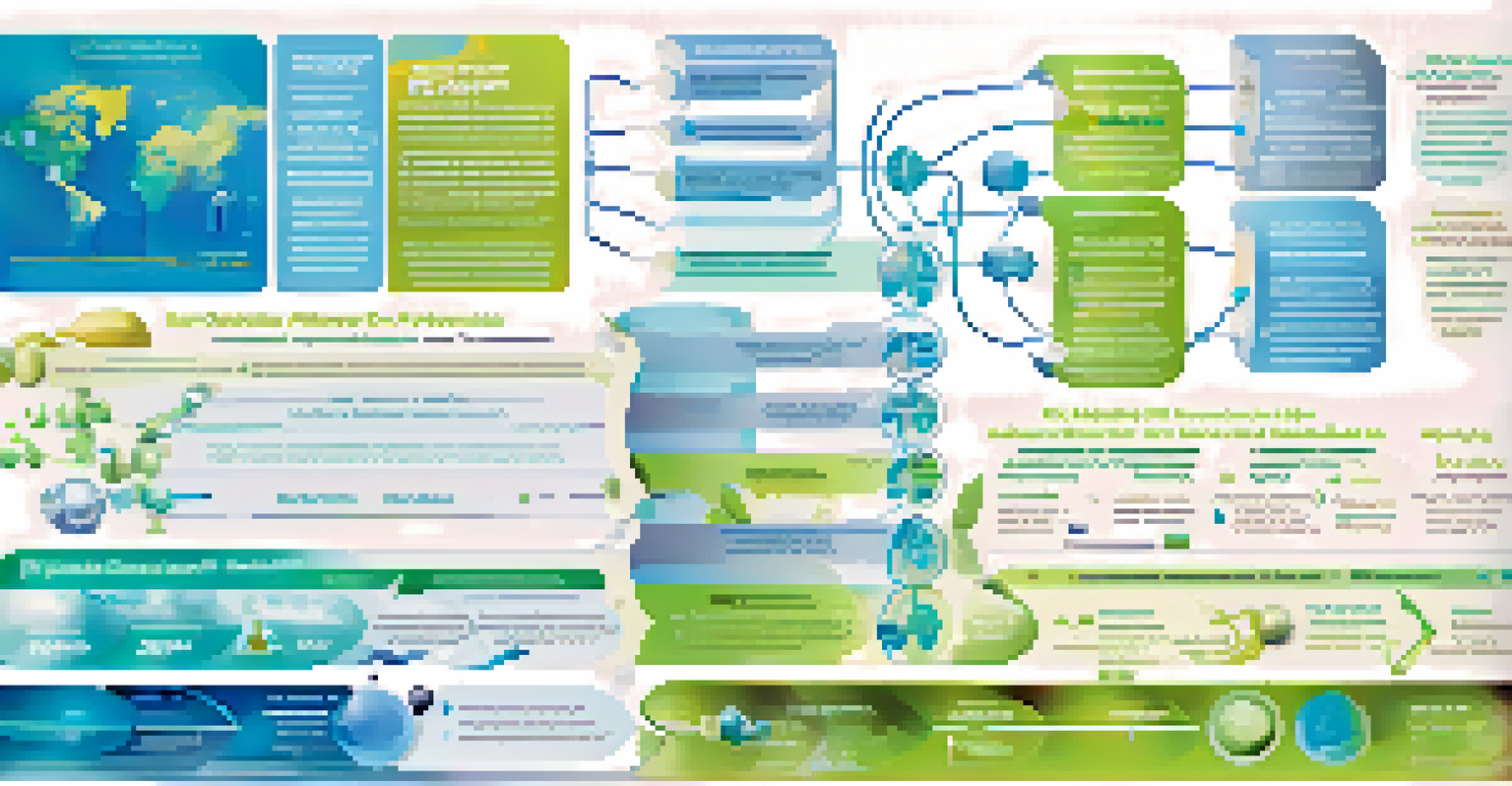Pharmacogenomics: Genetics Impacting Drug Response

What is Pharmacogenomics and Why is it Important?
Pharmacogenomics is the study of how our genes affect the way we respond to medications. This field combines pharmacology, the science of drugs, with genomics, the study of genes and their functions. Understanding this relationship is crucial because it can help tailor drug therapies to individual patients, enhancing treatment efficacy and minimizing side effects.
Pharmacogenomics promises to revolutionize the way we treat patients by personalizing medicine to fit their unique genetic profiles.
Imagine if your doctor could prescribe a medication that works best for you based on your genetic makeup. This personalized approach can significantly improve outcomes for patients, reducing the trial-and-error method often associated with traditional prescribing. It’s like having a GPS for your treatment path, guiding you to the best possible options.
As we delve deeper into pharmacogenomics, we're uncovering the potential of custom-tailored treatments, allowing for a future where medicine is not one-size-fits-all but uniquely suited to each individual. This shift could revolutionize how we approach healthcare, making it more proactive rather than reactive.
How Genetics Influence Drug Metabolism
Genetic variations can affect how our bodies metabolize drugs, which is a key factor in how effective a medication will be. For instance, some individuals may have a genetic variant that speeds up or slows down the breakdown of a drug, leading to different effects and potential side effects. This is where pharmacogenomics shines, helping identify who may need a higher or lower dose.

Picture this: two patients take the same medication for the same condition, but due to their unique genetic profiles, one may experience relief while the other suffers from adverse effects. Pharmacogenomic testing can help predict these outcomes, allowing healthcare providers to make informed decisions on medication choices and dosages.
Pharmacogenomics personalizes medicine
This field tailors drug therapies to individuals based on their genetic makeup, enhancing treatment efficacy and minimizing side effects.
By understanding these genetic factors, we can move towards more effective pain management, cancer treatments, and psychiatric therapies, ultimately leading to better patient care. This knowledge empowers patients and doctors alike, fostering a collaborative approach to health.
The Role of Specific Genes in Drug Response
Several genes play a significant role in drug response, with the CYP450 gene family being one of the most studied. These genes are responsible for metabolizing many common medications, including antidepressants, blood thinners, and pain relievers. Variations in these genes can lead to drastically different responses to the same drug.
The future of medicine is not one-size-fits-all; it's tailored to the individual, and pharmacogenomics is at the forefront of that change.
For example, if a patient has a mutation in a CYP450 gene that causes rapid metabolism, they might find that a standard dose of a medication doesn’t provide relief. Conversely, someone with a slower metabolism might experience toxicity at that same dose. Understanding these genetic differences can guide doctors in prescribing the right medication and dosage for each patient.
This gene-centric approach not only enhances treatment effectiveness but also significantly reduces the risk of adverse drug reactions. As research progresses, more genes will likely be identified, further refining our understanding of how genetics shape our health.
Impact of Pharmacogenomics on Mental Health Treatments
Mental health medications often come with a range of responses, and pharmacogenomics is starting to play a pivotal role in finding the right fit for patients. Conditions like depression and anxiety can be particularly challenging, as what works for one person may not work for another. By analyzing genetic markers, healthcare professionals can predict which medications might be most effective.
For instance, some patients may respond well to SSRIs (selective serotonin reuptake inhibitors) while others may not. Genetic testing can reveal variations that affect how these drugs are metabolized, allowing for more personalized treatment plans. This not only improves outcomes but also enhances patient satisfaction and adherence to treatment.
Genetics influence drug metabolism
Genetic variations can significantly affect how patients metabolize medications, leading to different treatment outcomes.
As mental health continues to gain recognition, the integration of pharmacogenomics into psychiatric care represents a significant step forward. It emphasizes a compassionate, individualized approach to treatment, recognizing that each patient's journey is unique.
Challenges and Limitations of Pharmacogenomics
Despite its potential, pharmacogenomics faces several challenges and limitations. One major issue is access to genetic testing, which can be costly and not widely available in all healthcare systems. Additionally, there can be disparities in how well different populations are represented in pharmacogenomic studies, leading to gaps in knowledge.
Moreover, interpreting genetic test results can be complex. Not every variation is well understood, and the relationship between genetics and drug response is not always straightforward. This complexity requires healthcare providers to be well-informed and up-to-date on the latest research, which can be a tall order.
Lastly, ethical considerations around genetic testing and data privacy are paramount. Patients must be assured that their genetic information will be handled securely and used appropriately. Addressing these challenges is critical for the successful integration of pharmacogenomics into mainstream healthcare.
The Future of Pharmacogenomics in Personalized Medicine
Looking ahead, the future of pharmacogenomics appears bright, with the potential to transform personalized medicine significantly. As more is understood about the genetic underpinnings of drug response, we can anticipate a shift towards individualized treatment plans that optimize efficacy and safety. This could lead to a new era in medicine where treatments are tailored specifically for each patient.
Imagine a world where a simple cheek swab could inform your doctor about the best medications and dosages for your unique genetic profile. This level of personalization could greatly reduce the trial and error often associated with finding the right treatment, leading to faster, more effective care.
Challenges in pharmacogenomic testing
Despite its potential, issues like access to testing, interpretation complexities, and ethical concerns hinder the widespread adoption of pharmacogenomics.
Furthermore, as technology advances and costs decrease, access to pharmacogenomic testing will likely become more widespread. This democratization of knowledge will empower patients to take ownership of their treatment journeys, fostering a more collaborative healthcare environment.
Real-Life Examples of Pharmacogenomics in Action
There are already real-world examples showcasing the impact of pharmacogenomics. For instance, some cancer treatments have adopted pharmacogenomic testing to determine which therapies are likely to be most effective based on a patient's genetic makeup. This approach has led to improved survival rates for many patients by ensuring they receive the right treatment from the start.
In addition, certain antidepressants have also benefited from pharmacogenomic insights. Patients with specific genetic variations may be less likely to respond to standard dosages of these medications. By using pharmacogenomic testing, doctors can identify these patients early on and adjust treatment strategies accordingly, often resulting in quicker relief from symptoms.

These examples illustrate how pharmacogenomics is not just a theoretical concept but a practical tool that can lead to tangible improvements in patient care. As more healthcare providers adopt this approach, we can expect to see even more success stories in various fields of medicine.